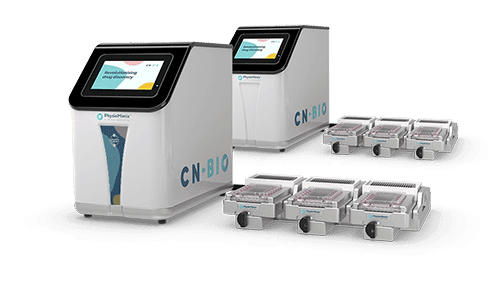London, UK, October 10 2017: CN Bio Innovations Limited announces that it has licensed from Vanderbilt University three patents and applications, and software, covering microfluidics technologies relevant to the company’s Organs-on-Chips products and IP portfolio.
The agreement includes exclusive rights to applications claiming priority from US 15/191,092, as well as non-exclusive rights to US 9,618,129 and applications claiming priority from US 13/877,925.
Developed by Professor John Wikswo, Gordon A. Cain University Professor, A. B. Learned Professor of Living State Physics and Founding Director of the Vanderbilt Institute for Integrative Biosystems Research and Education (VIIBRE), the licensed technologies were devised for Organ-on-a-Chip applications where the micropumps and valves allowed interactions between two or more organ mimics under automatic computer control. The technologies also allow scientists to simulate vital organs that are missing from multi-organ devices, for instance hormone-secreting organs, improving the accuracy with which such devices can mimic human physiology.
The ‘092 family extends the range of applications of the micropump/microvalve patents by providing a compact, cost-effective device that enables precise, automated control over the media composition in each well in a 96-well plate. Two of the potential applications of the licensed technologies are replacement of mouse xenograph studies by mimicking in vivo drug exposure in an in vitro system and the optimisation of conditions for stem cell differentiation.
The development of Organ-on-a-Chip and Body-on-a-Chip technologies has accelerated in recent years following significant investment by the US Defense Advanced Research Projects Agency (DARPA) and National Institutes of Health (NIH). With oversight from the Food and Drug Administration and Department of Defense, the sponsor’s goal has been to develop more human-relevant alternatives to animal testing for the evaluation of drugs, consumer products and countermeasures. CN Bio and Professor Wikswo were recipients of funding under these programs.
Chief Technical Officer of CN Bio, Dr David Hughes, said: “The licensed technologies are highly complementary to other Organ-on-Chips IP owned or licensed by CN Bio. With these additional technologies the precision and control we can achieve over conditions in the organ-mimics open up exciting new possibilities for modelling human biology and disease in the laboratory.”
John Wikswo added: “CN Bio is a forward-thinking company that appreciates what biomechatronics can bring to not only Organs-on-Chips but also the breadth of well-plate biology. I am eager to see devices that my group has worked on for the past seven years move into commercial production. I look forward to working with CN Bio as we translate the results of federal funding from the laboratory to the clinic, pharma, and other biological researchers.”
About CN Bio Innovations
CN Bio Innovations develops devices that boost the precision and speed of biological research. By predicting the effects chemical and biological substances will have on human organs, researchers can fast-track improvements in healthcare. In the past five years CN Bio has worked on more than 25 projects with pharmaceutical partners, using our Organs-on-Chips and related microfluidic devices to gather precise, human-relevant data.
CN Bio is backed by prestigious grant awards from sponsors including the US Department of Defense and Innovate UK. Spun out from the University of Oxford, the company is collaborating with and developing intellectual property from the Massachusetts Institute of Technology and Vanderbilt University.
About Vanderbilt University
Vanderbilt University, located in Nashville, Tenn., is a private research university offering undergraduate programs in the liberal arts and sciences, engineering, music, education and human development, as well as a full range of graduate and professional degrees. Vanderbilt and the separate, non-profit Vanderbilt University Medical Center enjoy close collaboration through education and research.
The Vanderbilt Institute for Integrative Biosystems Research and Education (VIIBRE) was established in 2001 with a $5 million, five-year grant from the Vanderbilt Academic Venture Capital Fund to foster and enhance interdisciplinary research in the biophysical sciences and bioengineering at Vanderbilt, integrated with a strong focus on undergraduate, graduate, and postdoctoral education. With this substantial institutional investment and the external grants and contracts upon which it is now largely dependent, VIIBRE has brought Vanderbilt to the forefront of cellular instrumentation and control using microfluidics in projects such as organs-on-chips, cellular biosensors, nanoliter bioreactors, chemotaxis devices, and models for cancer and toxicology research; identification of chemical and biological warfare defense agents and infectious pathogens; new technologies for tracking metabolic and signaling dynamics, particularly using ion mobility-mass spectrometry; biomedical imaging; cellular/tissue bioengineering; development of microfabricated devices for measuring cellular properties and controlling cellular behavior; custom digital and analog electronics; replica casting and injection molding of microfluidic devices; fabrication of large-scale instruments and biomedical devices; analysis of data; design of experiments; and development and application of mathematical models. Developing organs-on-chips and support hardware has been a major VIIBRE focus since 2011.


